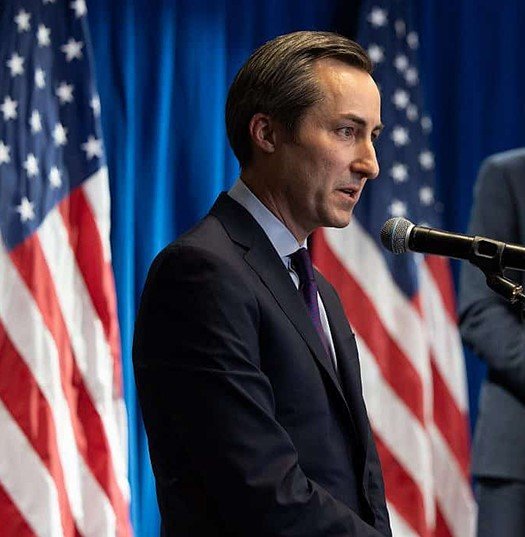In a recent statement, U.S. State Department Spokesman Matthew Miller refuted Russia’s allegations of the U.S. plotting regime change in Georgia. Miller emphasized the irony of Russia, which is illegally occupying 20% of Georgia, making such claims. The allegations, made by Russia’s Foreign Intelligence Service, accuse the U.S. of orchestrating a campaign to discredit Georgia’s ruling party. Miller’s response underscores the ongoing geopolitical tensions and the complex dynamics between the U.S., Russia, and Georgia.
Russia’s Allegations and U.S. Response
Russia’s Foreign Intelligence Service recently accused the U.S. of plotting to overthrow the Georgian government. According to the allegations, the U.S. has been orchestrating a large-scale information campaign to undermine the ruling Georgian Dream party. These claims were disseminated through Russian state media, adding fuel to the already tense relations between the two countries.
Matthew Miller, speaking at a press briefing, categorically denied these allegations. He labeled them as completely false and absurd, pointing out that this is not the first time Russia has made such baseless claims. Miller highlighted the irony of Russia, which is currently occupying 20% of Georgian territory, accusing another country of interference. His statement aimed to discredit the Russian narrative and reaffirm the U.S.’s stance on supporting Georgia’s sovereignty.

The U.S. has consistently supported Georgia in its efforts to maintain territorial integrity and sovereignty. Miller’s remarks are part of a broader strategy to counter Russian disinformation and reinforce the U.S.’s commitment to its allies. The allegations by Russia are seen as an attempt to divert attention from its own actions in the region.
The Ongoing Occupation of Georgian Territory
The occupation of Georgian territory by Russia remains a significant point of contention. Since the 2008 war, Russia has maintained a military presence in the regions of Abkhazia and South Ossetia, which constitute approximately 20% of Georgia’s territory. This occupation has been widely condemned by the international community, including the U.S. and the European Union.
The situation in these occupied regions is dire, with reports of human rights abuses and restricted access for international observers. The Georgian government has repeatedly called for the withdrawal of Russian troops and the restoration of its territorial integrity. However, Russia has shown no signs of relinquishing control over these areas, further complicating the prospects for peace and stability in the region.
Miller’s statement serves as a reminder of the ongoing occupation and the challenges faced by Georgia. By highlighting the irony of Russia’s allegations, he draws attention to the broader issue of Russian aggression and its impact on regional security. The U.S. continues to advocate for a peaceful resolution to the conflict and supports Georgia’s efforts to regain control over its occupied territories.
Geopolitical Implications and Future Prospects
The allegations and subsequent response from the U.S. have significant geopolitical implications. They reflect the broader struggle for influence in the region, with Russia seeking to maintain its dominance and the U.S. supporting democratic governance and sovereignty. The situation in Georgia is emblematic of the larger geopolitical contest between Russia and the West.
For Georgia, the support of the U.S. and other Western allies is crucial in its efforts to resist Russian influence. The country has made significant strides in its democratic development and aspirations for European integration. However, the ongoing occupation and geopolitical tensions pose significant challenges to these efforts.
Looking ahead, the international community’s response to Russia’s actions will be critical. Continued support for Georgia, both politically and economically, is essential to counterbalance Russian aggression. The situation underscores the importance of a coordinated and robust response to uphold international norms and support countries facing external threats.
